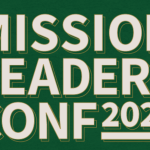 It would appear not. We recently asked for feedback on this question and we were pleasantly surprised at the robust response by those seeking to reassure us that, not only was people group thinking still relevant, it was also still the best way to approach many cultures and situations around the globe. For example, one Lausanne participant (“Doug” — not Doug Lucas) reminded us of the recent article, “Do People Groups still matter?”
It would appear not. We recently asked for feedback on this question and we were pleasantly surprised at the robust response by those seeking to reassure us that, not only was people group thinking still relevant, it was also still the best way to approach many cultures and situations around the globe. For example, one Lausanne participant (“Doug” — not Doug Lucas) reminded us of the recent article, “Do People Groups still matter?”
http://www.missionfrontiers.org/pdf/2010/03/summary
He added, “I currently live in Brazil where about half of more than 258 indian tribes are still without established indigenous churches.” He went on to assert that, “While it appears that churches are present in all segments of Brazilian society, People Group Thinking represents a viable tool for assisting churches to understand the breadth and depth of the challenge still remaining to ‘disciple the nations’ in Brazil.” His conclusion: “One fact is certain: people groups and PGT are not going to go away.”
Doug was representative of several, if not many, respondents who reported that even in urban areas, people group thinking can be a helpful lense through which to view reality.
Thanks to all those who participated. Do you have more input or a balancing viewpoint? If so, just click “Comment” below and have at it.












I agree that People Group Thinking is still relavant, but it must be tempered with how it is done and how it is used. To let thinking only about People Groups to develop strategy is not the best idea. Strategies must take in account many variables. Only after developing a strategy, can you begin to use People Group Thinking to develop your tactics. To “pick a people group” and go after them is not good use of personel and resources. We must be men of Issachar, and go after the ones that will make the difference, who will be able to affect the people around them, who will go and be missionaries to others, and who are involved strategically in the world today. A good example would be Iran… the country is very strategic in world politics, and in the stability of the Middle East… So we must reach the people of Iran. The Quashqui’ of southern Iran are not strategic in this equation. The youth are… without recognizing which people group they are in.